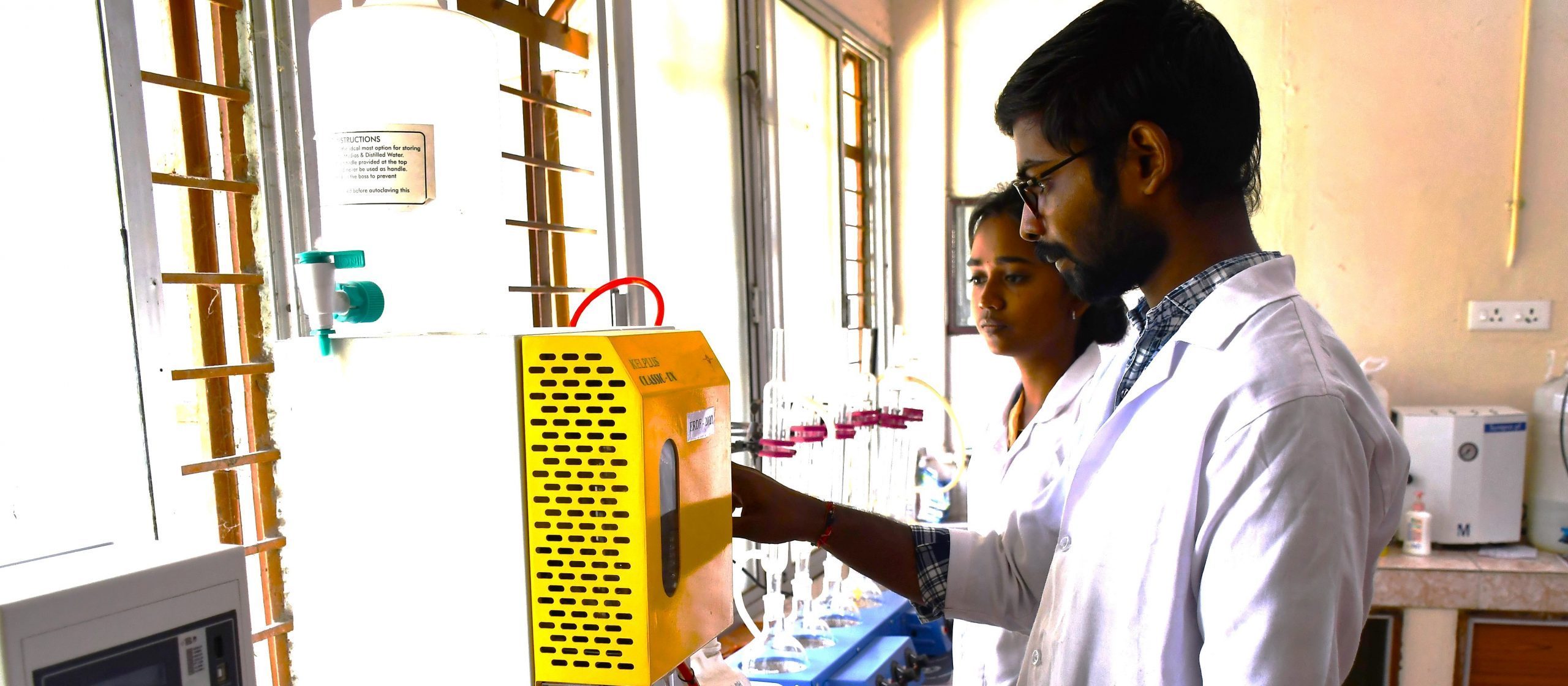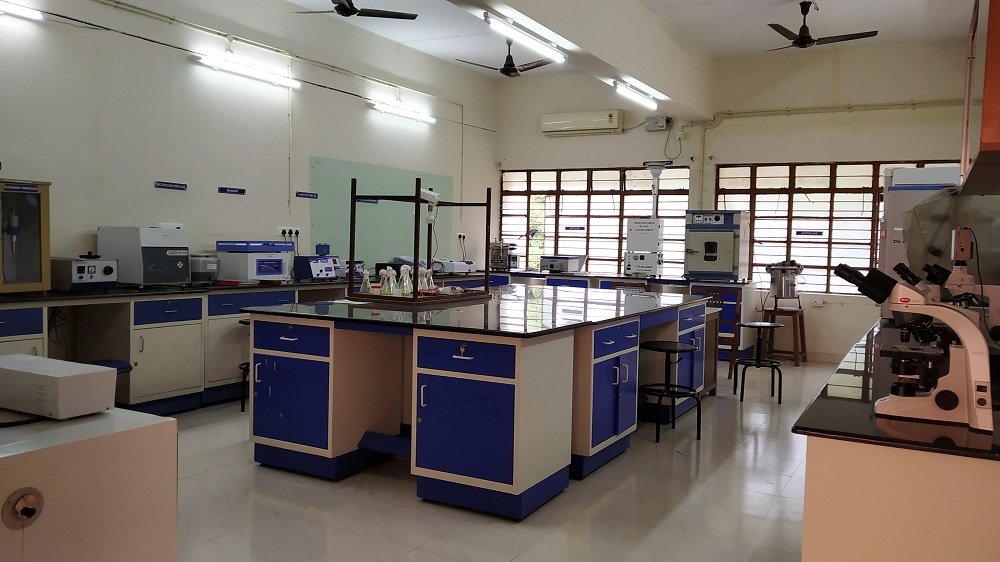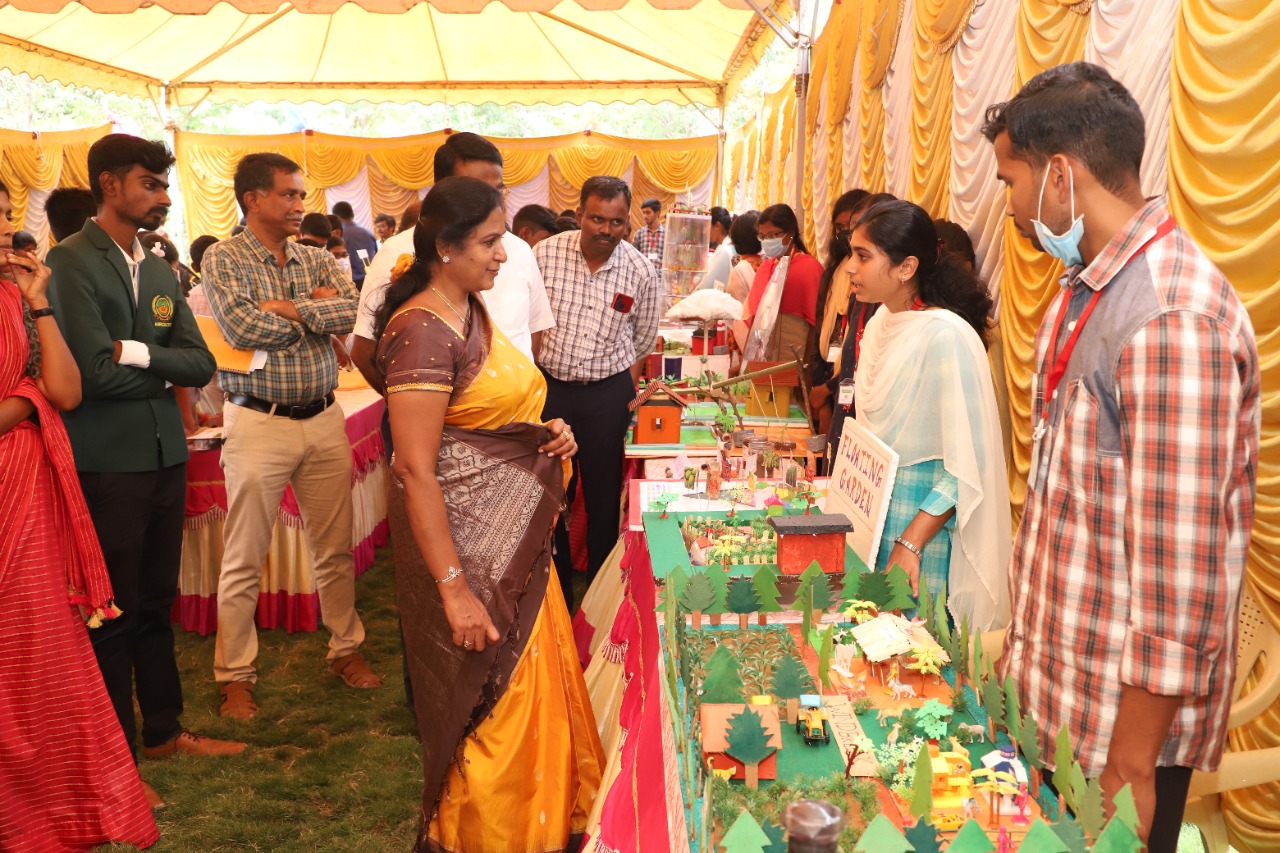The Tamil Nadu Agricultural University (TNAU) had its genesis from establishment of an Agricultural School at Saidapet, Madras, Tamil Nadu, as early as 1868 and it was later relocated at Coimbatore.
Get in touch
- info@tnau.ac.in
- 0422 6611200
- Monday to Friday: 9am to 5pm

Ph.D. in Environmental Science
Prelude
To address various environmental issues and to find appropriate technology with scientific solution, the Master’s in Environmental Science program has been started in the year 1989 at Tamil Nadu Agricultural University. Since then, the number of students joined in Master’s program gained momentum that paved way for starting a Doctoral program in Environmental Science to strengthen the research activities of the department of Environmental Sciences. The Doctoral program Environmental Science started in 1991 helped the scholars to take up problem-oriented research work and come out with the appropriate solution for the burning environmental issues.
Why this programme?
- To know about the environment and its components related to agriculture
- Thorough understanding of pollution level, pollutant and its types in air, water and soil.
- To learn different ideas of controlling pollution and create pollution-free environment containing clean air, water, food, and land
- To learn thoroughly about the various industrial effluents and its solid waste management strategies in eco-friendly manner.
- Provide technologies to mitigate climate change and air pollution
- To get awareness about the biodiversity of flora, fauna and marine ecosystems.

Study Programme
The Doctoral programme in Environmental Science has been designed following the UGC guidelines. The course imparts:
- Educating students and developing human resources in the field of Environmental Sciences to meet the national and global demands.
- Engaging advanced and innovative research to develop technologies for managing polluted soil and water.
- Eco- restoration of industrial effluent contaminated soils.
- To clean up the polluted water bodies through phyto and bioremediation techniques.
- To develop bio - composting technologies for utilization of various agricultural and industrial wastes.
- To develop green corridors for disaster management in coastal districts.
- To monitor the particulate matter and greenhouse gas emission levels in the atmosphere.
- To develop climate change mitigation strategies through carbon sequestration in agroecosystem.

Colleges offering
Application and Admission
Interested in taking part in the programme of Environmental Science? Find out more about the specific Admission requirements and the application procedures. If you doubt whether admission is possible, feel free to apply online. The Admission Committee will check your admissibility.

Future Career
- Central Pollution Control Board,
- State Pollution Control Board
- If UGC-NET qualified (JRF), scope to do doctoral research with fully funded support.
- If UGC-NET qualified, Assistant Professor
- ARS – Scientist
Student placement
- Dr. Latha. P, National Agro Foundation, Chennai
- Dr. Sathya. V, Environmental Scientist, Tamil Nadu Pollution Control Board, Tamil Nadu
- Dr. Balusamy, ARS-Scientist, Agricultural Scientist Recruitment Board
- Dr. Sinduja .M, Project Associate, National Agro Foundation, Chennai
- Dr. Ramya. A, Assistant Professor, Rathinam Institute of Management, Coimbatore
- Dr. Gopalakrishnan.B, ARS-Scientist, Agricultural Scientist Recruitment Board
- Dr. Rakesh S.S, Senior Research Fellow, Department of Environmental Sciences, TNAU
- Dr. Ezra John. J, Senior Research Fellow, Department of Environmental Sciences, TNAU
- Dr. Goveanthan A.S, Senior Research Fellow, Centre for Agricultural Nanotechnology, TNAU
- Dr. V. Karthika, Assitant Professor, Kumaraguru College of Agriculture, Erode
- Dr. R. Murugaragavan, Teaching Assistant, Department of Soils and Environment, AC & RI, Madurai.
- Dr. V. Karthika, Senior Inspector (Dairying), Aavin, Coimbatore
- Dr. S. M. Hameed Sulaiman, Associate Professor, Sultan Qaboos University, Oman
- Dr. V. Salom Gnana Thanga, Professor and Head, Kerala Agricultural University
- Dr. B. Sathish Kumar, Faculty, Addis Ababa University, Addis Ababa, Ethiopia
- Dr. Papitha. P, Associate Professor, Gandhigram Rural Institute, Dindugal
- Dr. K. Mary Celin Sandana, Scientist F, DRDO, Delhi
- Dr. R. Sagaya Alfred, Scientist, DST, Pondicherry
- Dr. M. Maheswari, Professor and Head, TNAU
- Dr. P. Dhevagi, Professor, TNAU
- Dr. M. Prasanthrajan, Professor, TNAU
- Dr. M. P. Sugumaran, Professor, TNAU
- Dr. A. Bharani, Professor, TNAU
- Dr.P. Ramesh, Professor, TNAU
- Dr. P. Jothimani, Professor, TNAU
- Dr. K. Sivasubramanian, Professor, TNAU
- Dr. R. Jayashree, Associate Professor, TNAU
- Dr. V. Davamani, Associate Professor, TNAU
- Dr. R.M. Jayabalakrishnan, Associate Professor, TNAU
- Dr. M. Parameswari, Associate Professor, TNAU
- Dr. K. Boomiraj, Associate Professor, TNAU
- Dr. S. Paul Sebastian, Associate Professor, TNAU
- Dr. P.C. Prabhu, Associate Professor, TNAU
- Dr. K. Suganya, Associate Professor, TNAU
- Dr. P. Kalaiselvi, Associate Professor, TNAU
- Dr.A. Krishnaveni, Associate Professor, TNAU
- Dr. C. Prabakaran, Assistant Professor, TNAU
- Dr. S. K. Rajkishore, Assistant Professor, TNAU
- Dr. R. Sunitha, Assistant Professor, TNAU
- Dr. M. Selvamurugan, Assistant Professor, TNAU
- Dr. S. Shenbagavalli, Assistant Professor, TNAU
- Dr. P. Thavamani, New Castle University, Australia
- Dr. M. Suguna Devakumari, Assistant Professor, Karunya University
- Dr. K. Senthilraja, Research Associate, TNAU
Environmental Science course
Doctoral Courses
After admission, the students undergo a set of courses that help them understand the basics of Molecular Biology as per the Choice Based Credit System (CBCS) with a total credit load of 100 credits, of which 75 credits are exclusively earmarked for their Thesis Research and the balance of 25 credits widely involved the major (12), minor (06), supporting (05) and seminar (02) credits.
Doctoral thesis research
After completing the courses in the first year, the students start their thesis research. Every student starts their research work by submitting the overall Research Work (ORW) by their respective chairperson. Each student is assigned to an experienced faculty, approved by the Dean of School of Post-Graduate Studies, who would guide the student on his/ her choice of research topic.
Research internship
The students are exposed to several scientific events like symposia and conferences. The students are now involved in the schemes like Rhizobiology of reed plants and its role in wastewater treatment and recycling and Eco-sanitation. Many are encouraged to have internship training at other institutes for a couple of months, either in India or abroad.
Student Experiences

“Environmental science is one of the hot topics of today’s world. Environment is a vital part of our everyday lives. I choose this programme as it helps in making a difference to the world in which we live and also helps in understanding everything we do from how humans are affecting climate to air quality and much more. This degree has enabled me with various skills and knowledge and has also allowed me to reconnect myself and others with our environment. An environmental science degree can help prepare you for a myriad of possibilities after leaving the university. By studying Environmental science, I became aware about the role we have to play in protecting mother nature.”
Regina Antony

“Environmental studies focus on the importance of environmental sustainability, development and encourages an eco-friendly lifestyle. It has helped me to study a lot about the intricacies of our environment and also has encouraged me to think about various solutions to various environmental problems. The study of environmental science has been an eye opener for me as I got deeply aware of the various problems such as global warming, climate change, ozone depletion, acid rains, deforestation and even the negative impacts of various pollutants for example the impact of microplastics in marine environment.”
Shahidha P. A.

“I am much more interested to study environmental science because it is core subject which includes many divisions in it like ecology, environmental chemistry, atmospheric sciences, etc., It is our prime duty to protect our earth as a whole by effective utilization of waste in any forms to energy or to resource. As humans are widely affecting the environment in an immature way. This creates my mind to blow about to take steps to preserve our living environment in any of the way.”
Blessy Monica K.

